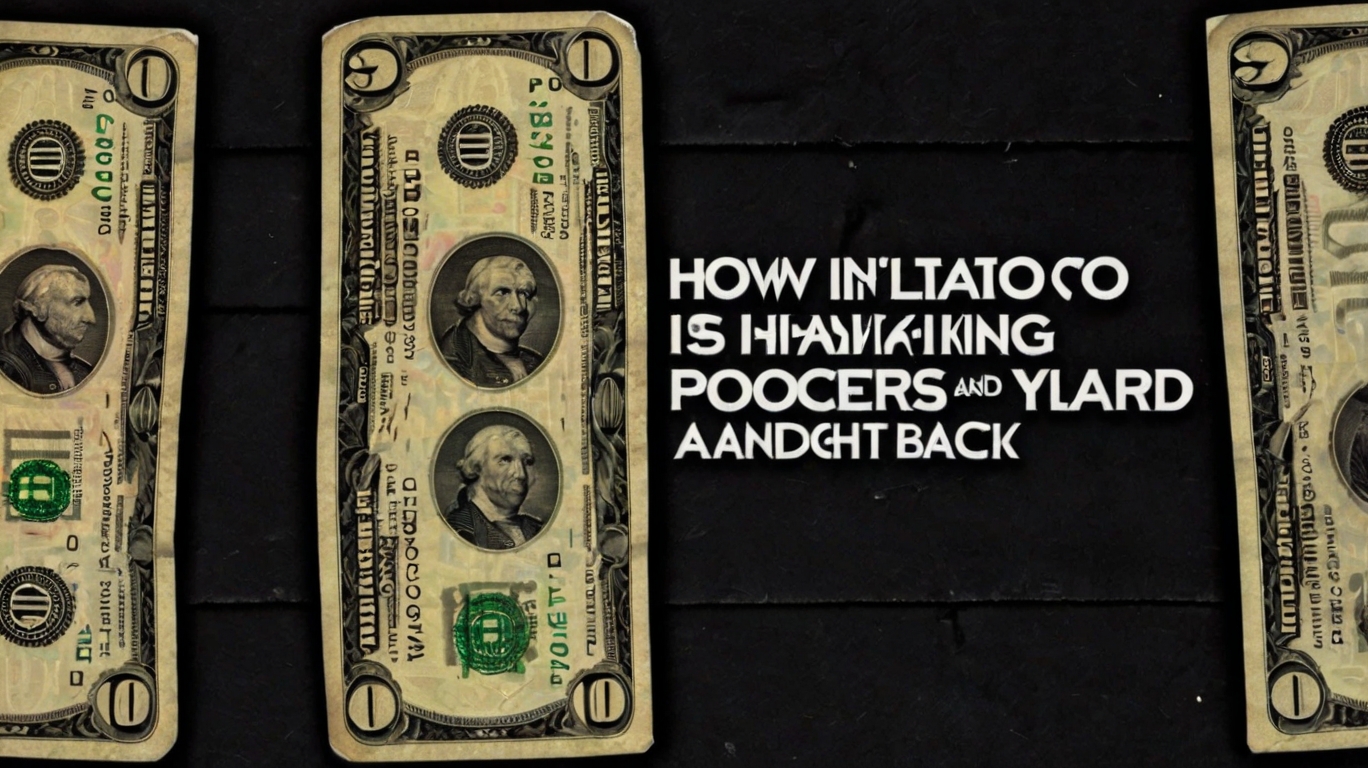How Inflation Steals Your Money
Inflation is the gradual increase in the prices of goods and services over time. When inflation rises, each dollar you have buys less than it did before. Here’s how it silently affects your finances:
1. Reduced Purchasing Power
The most direct effect of inflation is that your money doesn’t go as far as it used to. For example:
● A gallon of milk that cost
● 3.50fiveyearsagomightnowcost
● 3.50fiveyearsagomightnowcost5.
● A monthly grocery bill of
● 300couldnowbe
● 300couldnowbe400 for the same items.
Even if your salary increases, if it doesn’t keep up with inflation, you’re effectively earning less in real terms.
2. Erosion of Savings
If your money is sitting in a low-interest savings account (earning, say, 0.5% interest) while inflation is at 5%, your savings are losing 4.5% of their value every year. Over time, this compounds, meaning your emergency fund or retirement savings could be worth far less in the future.
3. Higher Borrowing Costs
To combat inflation, central banks often raise interest rates. This makes loans (like mortgages, car loans, and credit cards) more expensive, increasing your debt burden.
4. Hidden Tax on Wage Earners
If your salary increases by 3% but inflation is at 6%, you’re actually getting a 3% pay cut in real terms. Many employers don’t adjust wages sufficiently to match inflation, leaving workers with less disposable income.
3 Ways to Fight Back Against Inflation
While you can’t stop inflation, you can take steps to minimize its impact on your finances. Here are three key strategies:
1. Invest in Inflation-Resistant Assets
Holding cash is a losing game during high inflation. Instead, allocate your money into assets that historically outpace inflation:
● Stocks (Equities): Companies can raise prices to keep up with inflation, making stocks a strong hedge. Focus on dividend-paying stocks or index funds.
● Real Estate: Property values and rents tend to rise with inflation, making real estate a good long-term hedge.
● TIPS (Treasury Inflation-Protected Securities): These government bonds adjust with inflation, protecting your investment.
● Commodities (Gold, Silver, Oil): These tangible assets often increase in value when inflation rises.
2. Increase Your Income Streams
Relying solely on a salary leaves you vulnerable. Diversify your income with:
● Side Hustles (Freelancing, Gig Work, Online Businesses)
● Passive Income (Dividends, Rental Income, Royalties)
● Career Advancement (Upskilling, Negotiating Raises, Switching Jobs for Higher Pay)
The more income sources you have, the less inflation will hurt you.
3. Cut Costs & Optimize Spending
Small changes in spending habits can offset inflation’s impact:
● Shop Smarter: Use cashback apps, buy in bulk, and switch to generic brands.
● Reduce Debt: Pay off high-interest debt (like credit cards) to avoid rising interest costs.
● Energy Efficiency: Lower utility bills by using energy-efficient appliances and reducing waste.
Final Thoughts
Inflation is unavoidable, but financial decline isn’t. By understanding how inflation works and taking proactive steps—investing wisely, boosting income, and optimizing spending—you can protect your wealth and even thrive despite rising prices.
The key is to act now before inflation eats away more of your hard-earned money. Start implementing these strategies today to secure a stronger financial future.
_1060.png)
_1060.png)






_1060.png)
_1060.png)








Write your comment
Cancel Reply